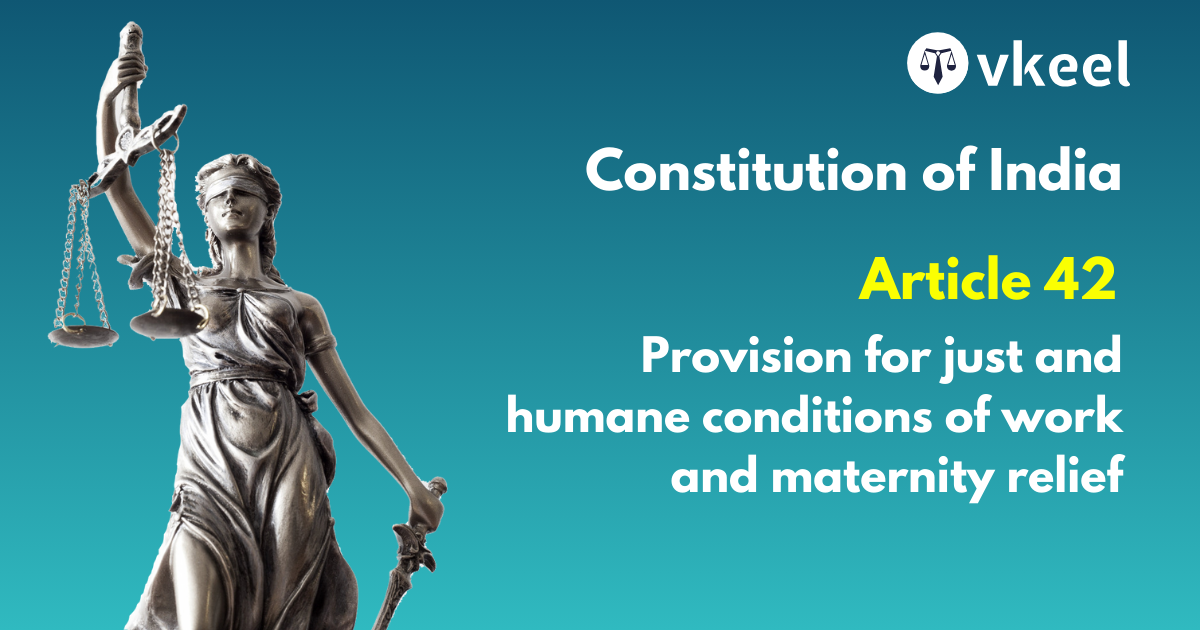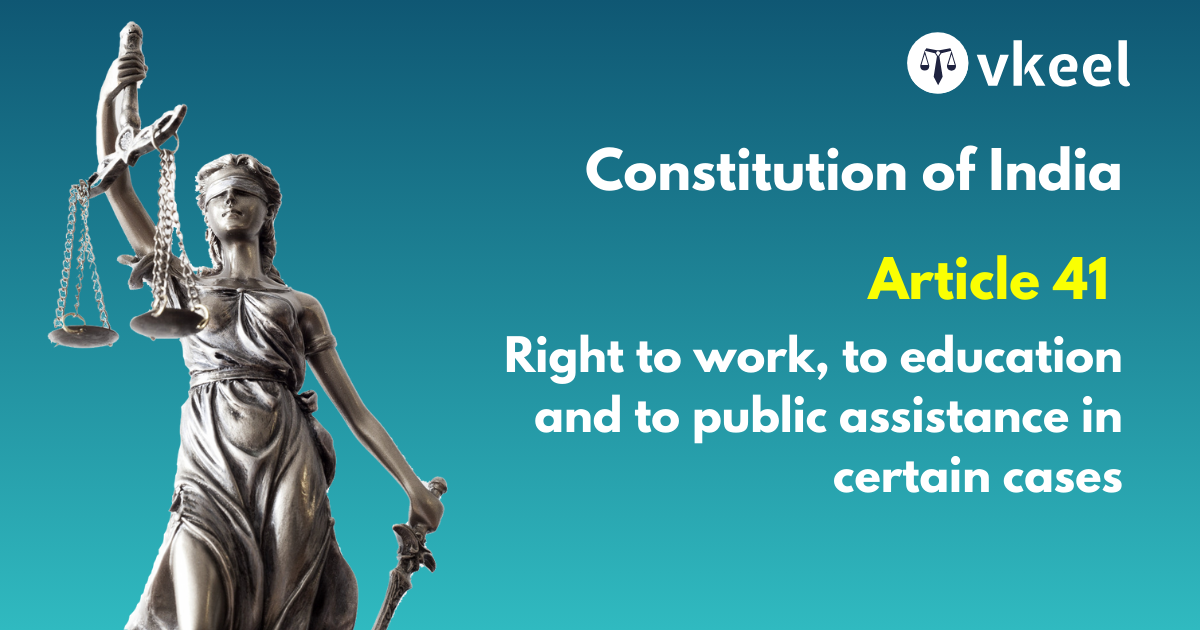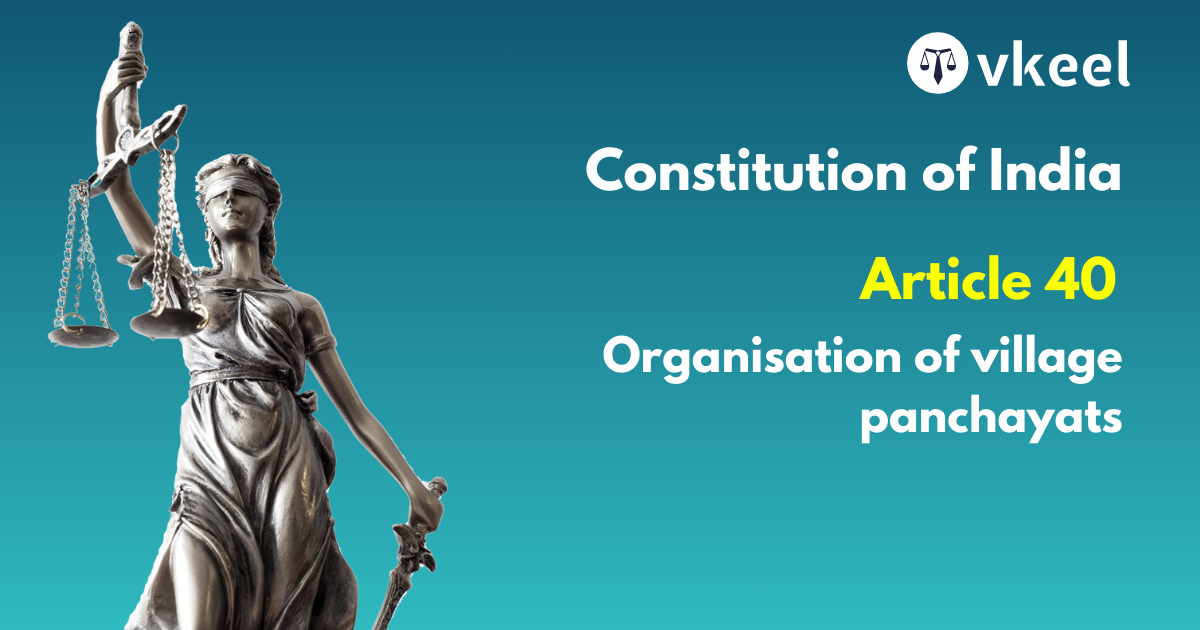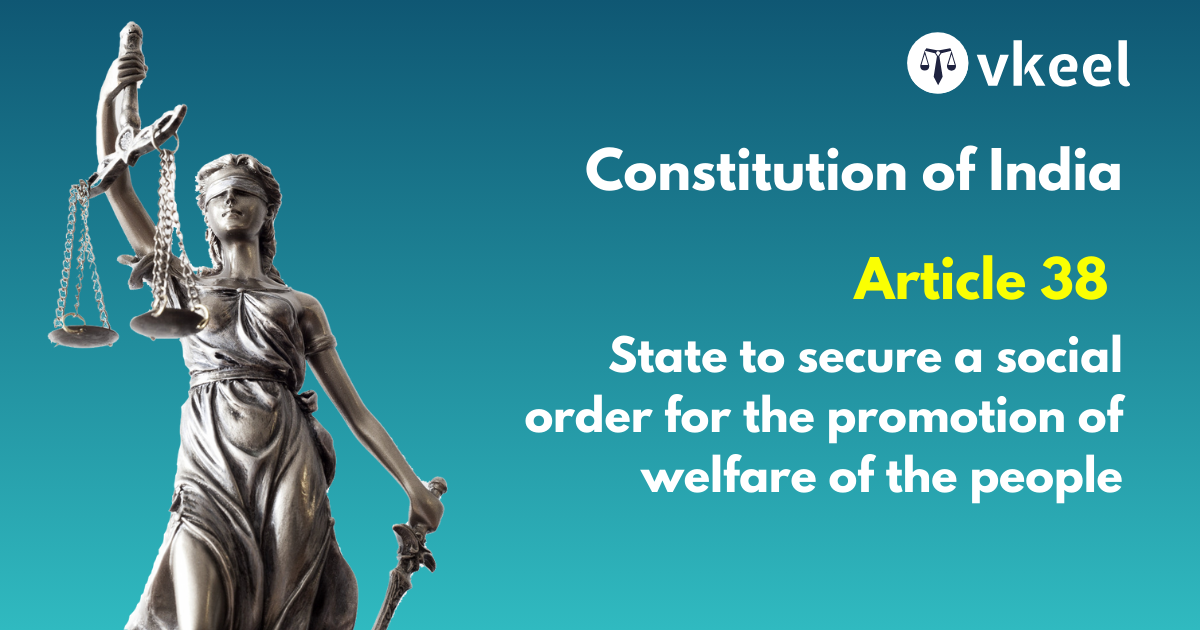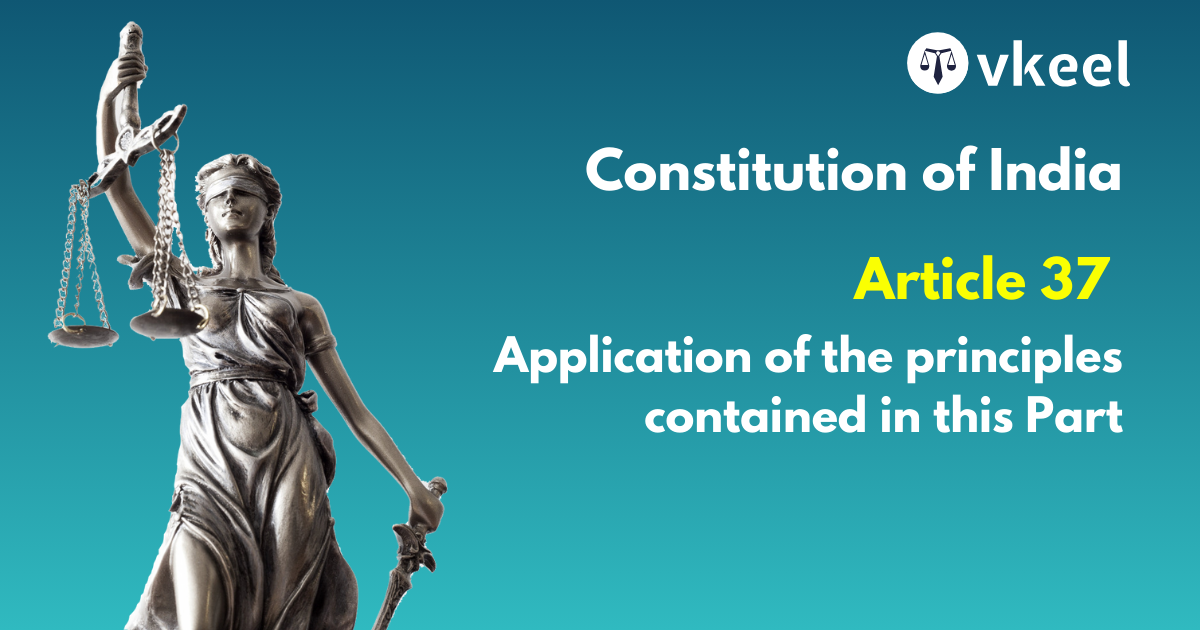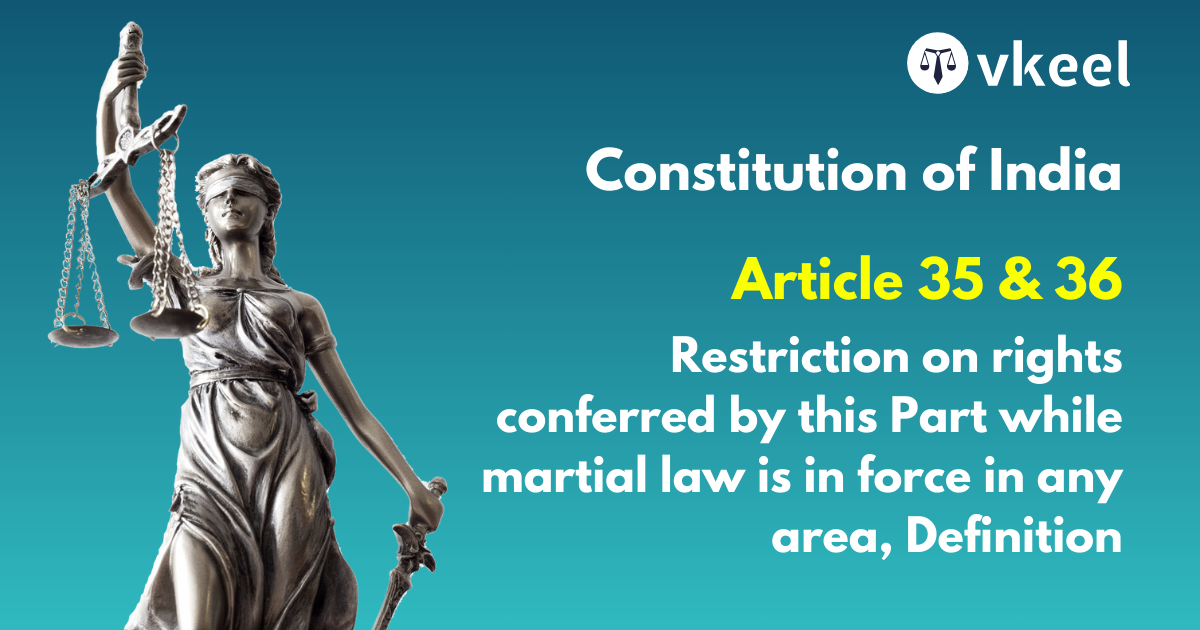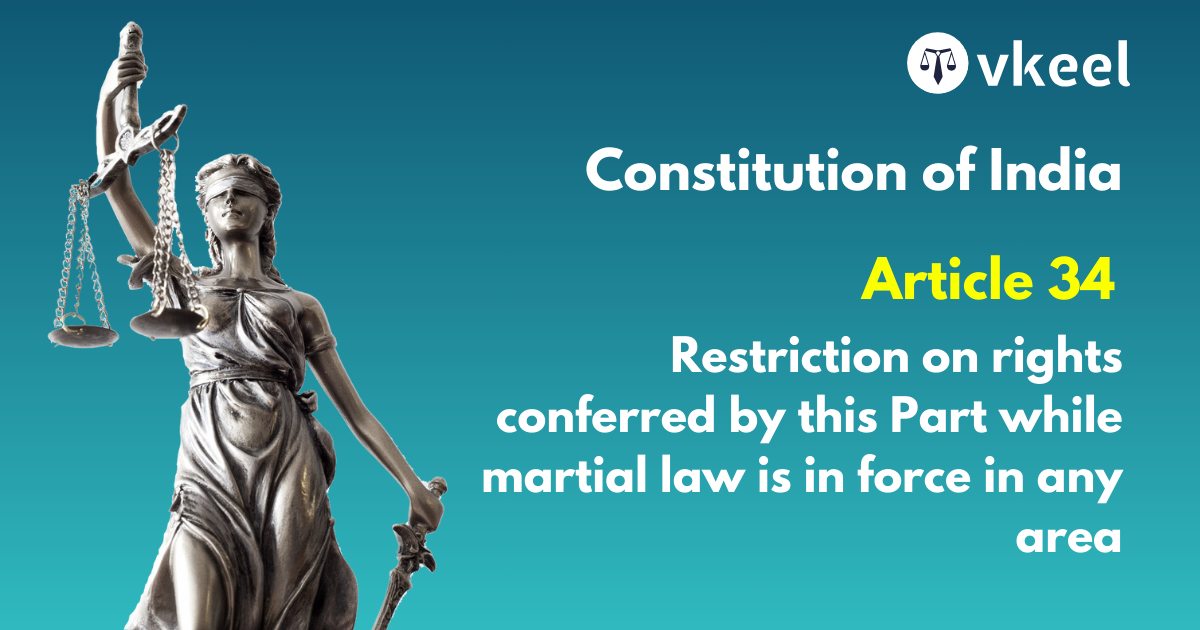Article 39 of the Constitution of India
By Joy Puri
Introduction
The Article 39 of the Constitution of India constitutes as an important part of the Directive Principles of the State Policy.
These principles entailed in the Constitution of India proves to play a significant role in the decision-making policy of the State, thereby being a guiding light in the dark.
The Article 39 of the Constitution of India further enumerates regarding the equal pay for work, providing decent livelihood etc. which are further explicated in the present article.
Article 39 of the Constitution of India
Certain principles of policy to be followed by the State
The State shall, in particular, direct its policy towards securing-
(a) that the citizens, men and women equally, have the right to an adequate means to livelihood;
(b) that the ownership and control of the material resources of the community are so distributed as best to sub serve the common good;
(c) that the operation of the economic system does not result in the concentration of wealth and means of production to the common detriment;
(d) that there is equal pay for equal work for both men and women;
(e) that the health and strength of workers, men and women, and the tender age of children are not abused and that citizens are not forced by economic necessity to enter avocations unsuited to their age or strength;
(f) that children are given opportunities and facilities to develop in a healthy manner and in conditions of freedom and dignity and that childhood and youth are protected against exploitation and against moral and material abandonment.
Landmark Case Laws
Samatha Vs State of Andhra Pradesh, AIR 1997 SC 3297
Article 39(b) of the Constitution enjoins the State to have its policy towards securing that the ownership and control of the material resources of the community are so distributed as best to subserve the common good. What it connotes is a duty cast on the State for building of a welfare State and an egalitarian social order. The object is that the basic need of a common man must be fulfilled and the State should endeavour to change the structure of the society. The key word is ‘distribution’ and the genus of the article cannot but be given full play as it fulfills the basic purpose of reconstructing the economic order. It embraces the entire material resources of the community. Its task is to distribute such resources. Its goal is to undertake distribution as best to subserve the common good. It reorganises by such distribution the ownership and control. Distribution includes nationalisation of private enterprises.
Sanjeev Coke Manufacturing Company Vs Bharat Coking Coal, AIR 1983 SC 239
It will not be correct to construe the word ‘distribution’ in a purely literal sense so as to mean only a division of a particular kind or to particular persons. The apportionment, allotment, allocation and classification clearly fall within the broad sweep of the word ‘distribution’. So construed, the word distribution in article 39 (b) will include various facets, aspects, methods and terminology of a broad-based concept of distribution. In other words, the word ‘distribution’ does not merely mean that property of one should be taken over and distributed to others like land reforms where the lands from the big landlords are taken away and given to landless labourers or for that matter the various urban and rural ceiling Acts. That is one of the modes of distribution but not the only mode. By nationalisation, where the transport vehicles are able to go the farthest corner of the State, this would undoubtedly be a distribution for the common good of the people and would be clearly covered by article 39(b). Article 39 (b) refers to material resources of the community, it does not refer only to resources owned by the community as a whole but it refers also to resources owned by individual members of the community. Resources of the community do not mean public resources only but include private resources as well. Nor do we understand the word ‘distribute’ to be used in article 39 (b) in the limited sense that is, in the sense only of retail distribution to individuals. It is used in a wider sense so as to take in all manner and method of distribution such as distribution between regions, distribution between industries, distribution between classes and distribution between public, private and joint sectors. The distribution envisaged by article 39 (b) necessarily takes within its stride the transformation of wealth from private ownership into public ownership and is not confined to that which is already public-owned. All things that are capable of producing wealth are material resources of the community. These include movable and immovable property – land, buildings, shops, vehicles etc. The electricity generated and distributed by private undertakings constitute “material resources of the community” for the purpose and within the meaning of article 39(b) of the Constitution. To exclude ownership of private resources from the coils of article 39(b) is to cipherise its very purpose of redistribution the socialist way.
Ashoka Smokeless Coal India (P) Ltd. v. Union of India, (2007) 2 SCC 640
It may not be correct to say that any action which is not in consonance with the of Part IV of the Constitution would be ultra vires but there cannot be provisions any doubt whatsoever that the principles contained therein would form a relevant consideration for determining a question in regard to price fixation of an essential commodity. A distinction must be borne in mind when a State intends to part with a privilege or a largese as a competitor in the market and when it is expected to fulfil its constitutional goal enshrined under article 39(b) of the Constitution. Coal was nationalized under Coking Coal Mines (Nationalization) Act, 1972 and Coal Mines (Nationalization) Act, 1973 so as to fulfil the constitutional object contained in article 39(b) of the Constitution of India. In terms of the Nationalization Acts indisputably the coal companies as also the Union of India were bound to take action in furtherance of the task of achieving the purport and object for which the coking coal mines and the coal mines were nationalized. It may be true that prices are required to be fixed having regard to the market forces. Demand and supply is a relevant factor as regards fixation of the price. In a market governed by free economy where competition is the buzzword, producers may fix their own price. It is, however, difficult to give effect to the constitutional obligations of a State and the principles leading to a free economy at the same time. A level playing field is the key factor for invoking new economy. Such a level playing field can be achieved when there are a number of suppliers and when there are competitors in the market enabling the consumer to exercise choices for the purpose of procurement of goods. If the policy of the open market is to be achieved the benefit of the consumer must be kept uppermost in mind by the State. E-Auction was struck down as unconstitutional when dealing with essential commodities. E-Auction is not made to fix price. It is only a mode to obtain maximum price. In other words, deriving the optimum benefit by sale of coal is the goal. While doing so State does not have to follow the principles of fixation of price. It is not required to apply its mind as to its effect. It treats coal like any other commodity.
H.S. Srinivasa Rangavachar Vs State of Karnataka, AIR 1987 SC 1518
A law for agrarian reforms is clearly aimed to secure the directive principles contained in article 39 (b) and (c) of the Constitution. The vesting ownership of the land to the tiller of the land is the best way of securing the utmost utilisation of land, a material resource of the community for the common good of the entire community. When the Government distributes the material resources, as engrafted in article 39 (b) of the Constitution, the object of the policy is to effective the mandate of the Constitution in the Preamble of the Constitution, viz., social justice and dignity of person with equal status.
Conclusion
To conclude to Article 39 of the Indian Constitution, the provision thereby proves it to be based on the legal principles. The foundational principles of the provision aims for betterment of the society thereof.
Disclaimer:
The information provided in the article is for general informational purposes only, and is not intended to constitute legal advice or to be relied upon as a substitute for legal advice. Furthermore, any information contained in the article is not guaranteed to be current, complete or accurate. If you require legal advice or representation, you should contact an attorney or law firm directly. We are not responsible for any damages resulting from any reliance on the content of this website.



